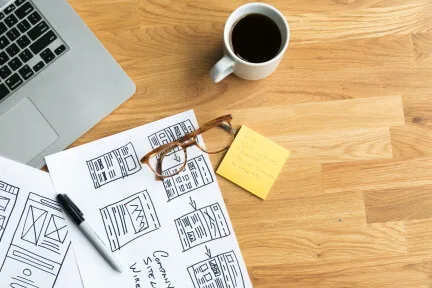One of the top reasons to use self-assessment tools for personal development is to track your progress.
Table of Contents

Hi, Ian here — welcome! Let’s talk about self-assessment tools and how they can help you grow.
If you’re ready to improve yourself, you’re in the right place. Self-assessment tools give you insights into your strengths, weaknesses, and growth areas.
They help you set goals, make a plan, and track how far you’ve come.
You’ll find lots of options, both online and offline. Some cover broad topics, while others focus on personality, career, relationships, or health.
Here are a few tips to get the most out of them:
- Pick the right tool. Make sure it fits your goals and is proven to be reliable.
- Be honest. They only work if you’re real about your strengths and weaknesses.
- Use what you learn. Reflect on your results, then make a plan to improve and grow.
- Check in often. Don’t just take a test once — keep revisiting it to see your progress and adjust your plan.
Here are a few good self-assessment tools to try:
- Personality tests — like the MBTI or Big Five — help you understand how you tick.
- Strengths assessments — like StrengthsFinder or CliftonStrengths — show you your top talents.
- Career assessments — such as the Holland Code — help you match your skills and interests to the right work.
- Relationship assessments — like the Gottman Inventory — reveal how you relate to others.
- Health assessments — such as the Health Risk Appraisal — give you a snapshot of your well-being.
Used well, these tools are a powerful way to learn more about yourself, get clear on what you want, and make a plan to get there.
Here are a few writing style tips I always keep in mind:
- Use first-person pronouns (I, you, we) to build a connection.
- Use contractions to sound natural and conversational.
- Sprinkle in humor or stories where it fits.
- Keep your language clear and simple.
- Avoid jargon that could confuse people.
So, that’s a wrap! I hope you feel inspired to try some self-assessment tools for your own growth. Be honest, stay curious, and use what you learn to level up. Good luck on your journey!
Resources:
- What are self-assessment tools?
- How to use self-assessment tools effectively
- List of self-assessment tools
If you don’t measure your progress, you’ll never really know how far you’ve come — or how far you’ve got to go. Here’s how to check in on your progress regularly:
FAQs
How often should I do a self-assessment?
It depends on your goals! Many people find it helpful to do a quick self-assessment weekly or monthly to stay on track and adjust their plans as needed.
Final Words
Self-assessment tools really are an incredible way to gain honest insight into your personal development journey. They help you spot your strengths, weaknesses, and all those hidden areas where you can grow. Once you have this knowledge, you can build a realistic, actionable plan to move forward.
Tools like the Myers-Briggs Type Indicator (MBTI) can help you figure out your personality type, while others like SWOT analyses or daily self-assessment templates keep you on track. Just remember — these tools give you the data, but it’s up to you to take action. So stay honest with yourself, track your progress, and don’t be afraid to tweak your plan when you need to.
One of the best ways to get started is to see what kind of personality you have. You can take the free “16 Personalities Test” right now and learn something new about yourself today. Combine that with the methods you’ve learned here and you’ll have everything you need to keep growing and achieving your personal goals.
Wishing you health, wealth, and all the personal growth you deserve!
